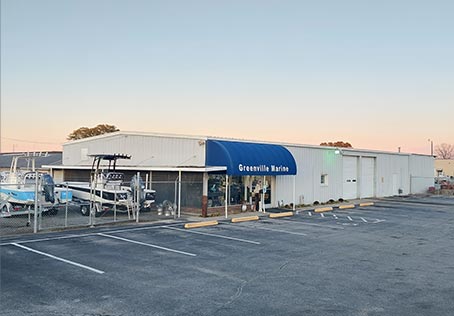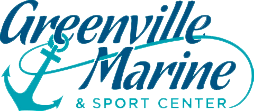We Have Two Buildings!
Greenville Marine's Outdoor Shop and marine dealership are conveniently located across from each other on Marine Drive access road. When you turn onto Marine Drive, you will see the Marine Dealership on your left and the Outdoor shop on your right!
Head over to the big blue GREENVILLE MARINE canopy for boats or stop by our Outdoor Shop for all your fishing, tackle, hunting, shooting, and archery needs!
-
Marine Dealership

-
Outdoor Shop

Welcome To
Greenville Marine & Sports Center
We have been serving Pitt, Edgecombe and Beaufort counties and Eastern North Carolina for 51 years. We are your local boat, motor, and trailer dealer for Robalo, Tidewater, NauticStar, Phoenix, G3, Cypress Cay, May Craft, and Sundance boats. We even like super fast boats such as Allison boats. We sell Yamaha, Mercury and Suzuki engines. We also sell Load Rite and Road King trailers. We have an experienced sales and service staff who would love to help you with a new or used boat purchase right here in Greenville, NC.
Learn More









